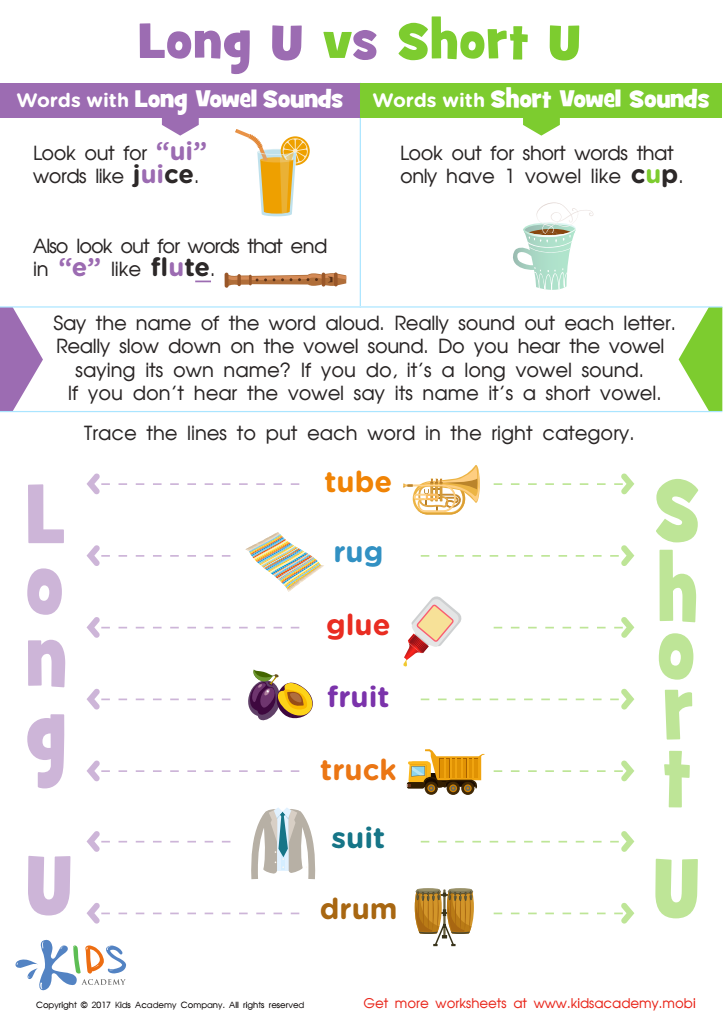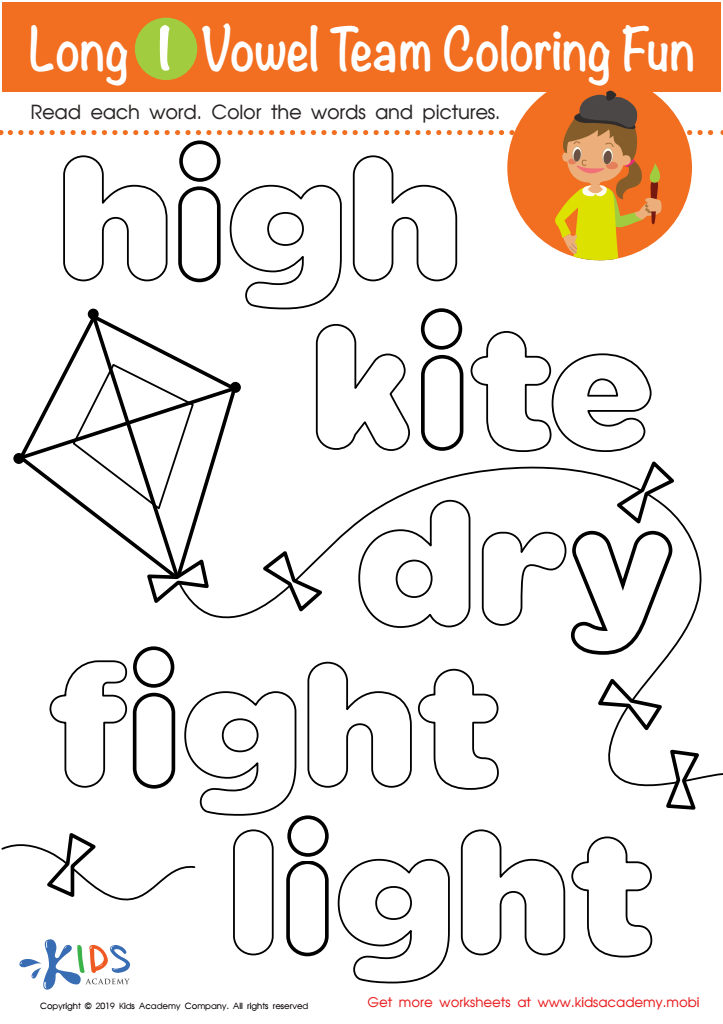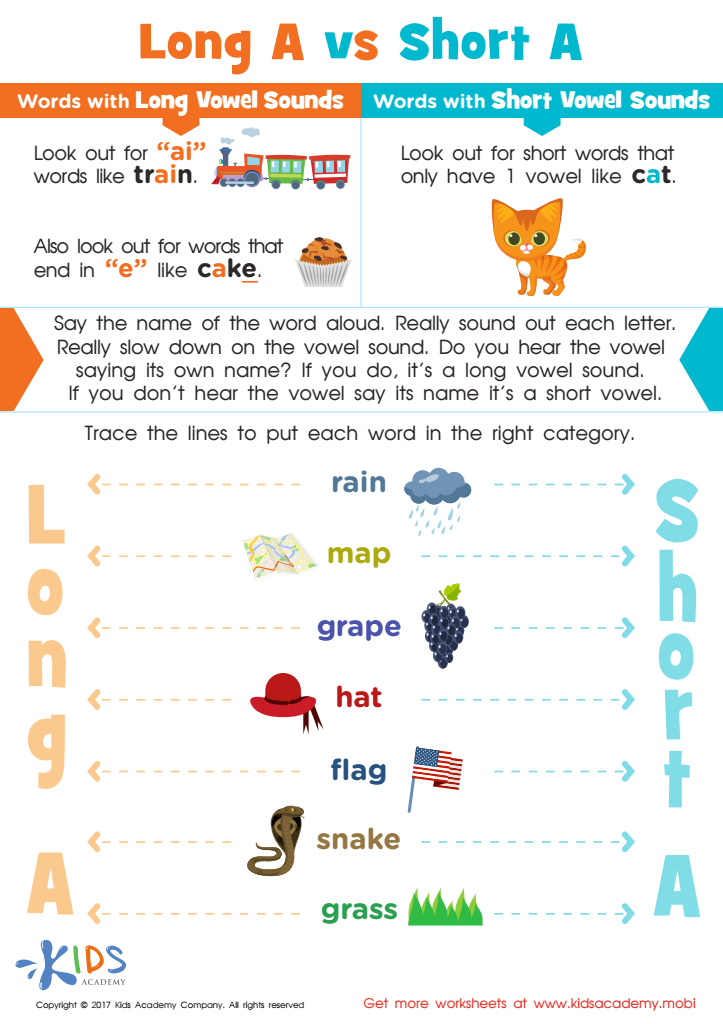Vowel Recognition Worksheets for 9-Year-Olds
3 filtered results
-
From - To
Boost your 9-year-old's literacy skills with our comprehensive Vowel Recognition Worksheets. Tailored to make learning fun and effective, these printable worksheets from Kids Academy help children recognize and accurately use vowels in various engaging activities. By combining eye-catching illustrations and thoughtful exercises, these resources promote phonemic awareness and reading fluency. Ideal for classroom assignments or at-home practice, our worksheets are designed to cater to the specific learning needs of young students. Equip your child or students with vital vowel recognition skills and watch them excel in their reading journey.


Long and Short Vowel U Spelling Worksheet


Long I Vowel Team Coloring Worksheet


Long and Short Vowel A Spelling Worksheet
Vowel recognition is a critical component of literacy that can significantly enhance a child's reading and writing proficiency. At the age of nine, children are at a pivotal stage in their language development, transitioning from learning to read to reading to learn. Vowels, the backbone of English words, help form the syllables that make up speech. A solid grasp of vowel sounds enables children to decode unfamiliar words easily, improving their reading fluency and comprehension. This becomes especially crucial for encountering more complex texts in various subjects.
Moreover, vowel recognition aids in spelling and writing. Understanding vowel patterns helps children spell words correctly and grasp word structures, reducing confusion between similarly spelled words. This forms a foundation for their ability to articulate thoughts in writing clearly and accurately.
Inconsistent or poor vowel recognition can lead to struggles in these areas, impeding academic progress and possibly attributing to frustration or a lack of confidence. For teachers and parents, focusing on vowel recognition is an investment in a child's broader educational success. Engaging children in fun, interactive activities that emphasize vowels can make this learning process enjoyable and effective, fostering a lifelong love for reading and learning.
In sum, prioritizing vowel recognition equips children with essential building blocks for literacy, promoting better academic outcomes and boosting their confidence in their capabilities.
 Assign to My Students
Assign to My Students















